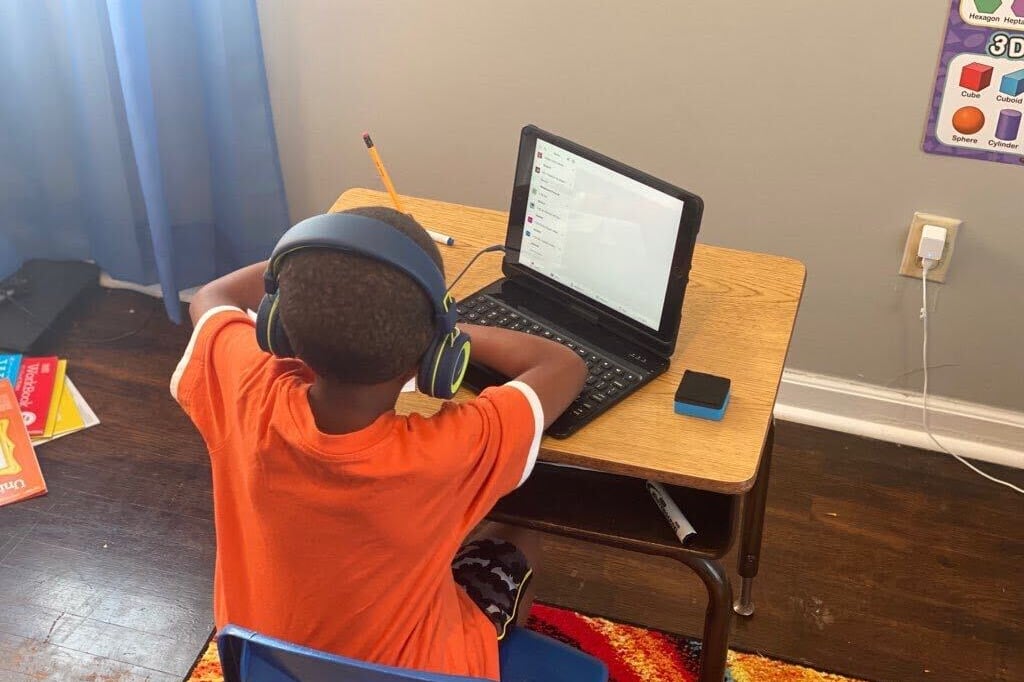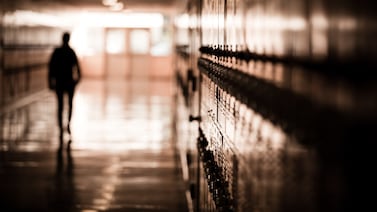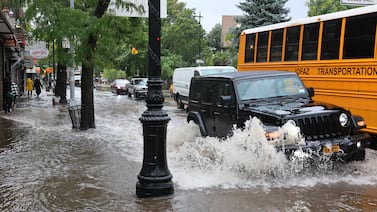Michigan parents, worried about the effect the pandemic is having on their children’s learning, say state leaders need an academic recovery plan to make sure students who fall behind can catch up.
Part of that recovery, an overwhelming majority say, should include free summer school.
Those are some of the main findings in a new report out Thursday from the Education Trust-Midwest, an education advocacy and research organization based in Royal Oak. The organization surveyed 400 parents from across the state in mid to late December.
The report comes as educators and policymakers place increased focus on the academic well-being of students. In Michigan this school year, enrollment is down, thousands more students are being educated at home by their parents, and about 13,000 students are unaccounted for. Meanwhile, some of the students who are attending school — whether in person or online — are struggling. Educators say they’re seeing more students earning Fs in Michigan and across the nation.
The organization usually releases an annual report this time of the year that is focused on Michigan’s progress toward becoming a top 10 performing state academically. This year’s report is focused on parents, largely because the pandemic has upended statewide assessments and accountability.
Amber Arellano, executive director of the organization, said in a statement that state leaders need to prepare and act now.
“We call upon state leaders to invest in solution-based strategies that both address children’s educational recovery of student learning, as well as the long-standing inequities and opportunity gaps that have plagued the state’s vulnerable students for decades.”
In addition to the organization’s call for an academic recovery plan, Arellano said in an interview that state leaders also must address the short-term and long-term effects of the pandemic. That includes school funding. While the recent federal stimulus bill has provided billions more for schools, there remains concern about whether the pandemic will force state budget cuts.
“We’re calling on state leaders to prioritize vulnerable students if there will be cuts, and if there are available dollars, to invest more in those students,” Arellano said, referring to children from low-income homes, students of color, English language learners, and special education students.
Here are some of the key findings:
- 85% of parents said they’re concerned about their child falling behind academically.
- 85% of all parents say state leaders should have a plan to address learning loss and make sure students catch up.
- 47% of parents say they have received little or no information about whether their child has learning loss or has fallen behind grade level expectations.
- 83% of parents say state leaders should provide safe, free, and voluntary in-person summer school for students that need to catch up.
- 52% of parents whose children are learning online say their child’s educational experience is worse than it was before the pandemic.
The 65-page report includes the personal stories of a half-dozen Michigan parents and students. Among them is Stacey Young, a Detroit mother of five whose frustration with pandemic learning prompted her to home-school her children.
“COVID has made things worse, but it has also shined a light on what families need,” said Young, who works as a family advocate. “The issues these families were facing existed pre-COVID-19, but not until the virus was anyone compelled to address them. Schools need to be realistic about families’ needs and willing to use their resources to help.”
Read the full report, including more recommendations from Education Trust-Midwest, here.







